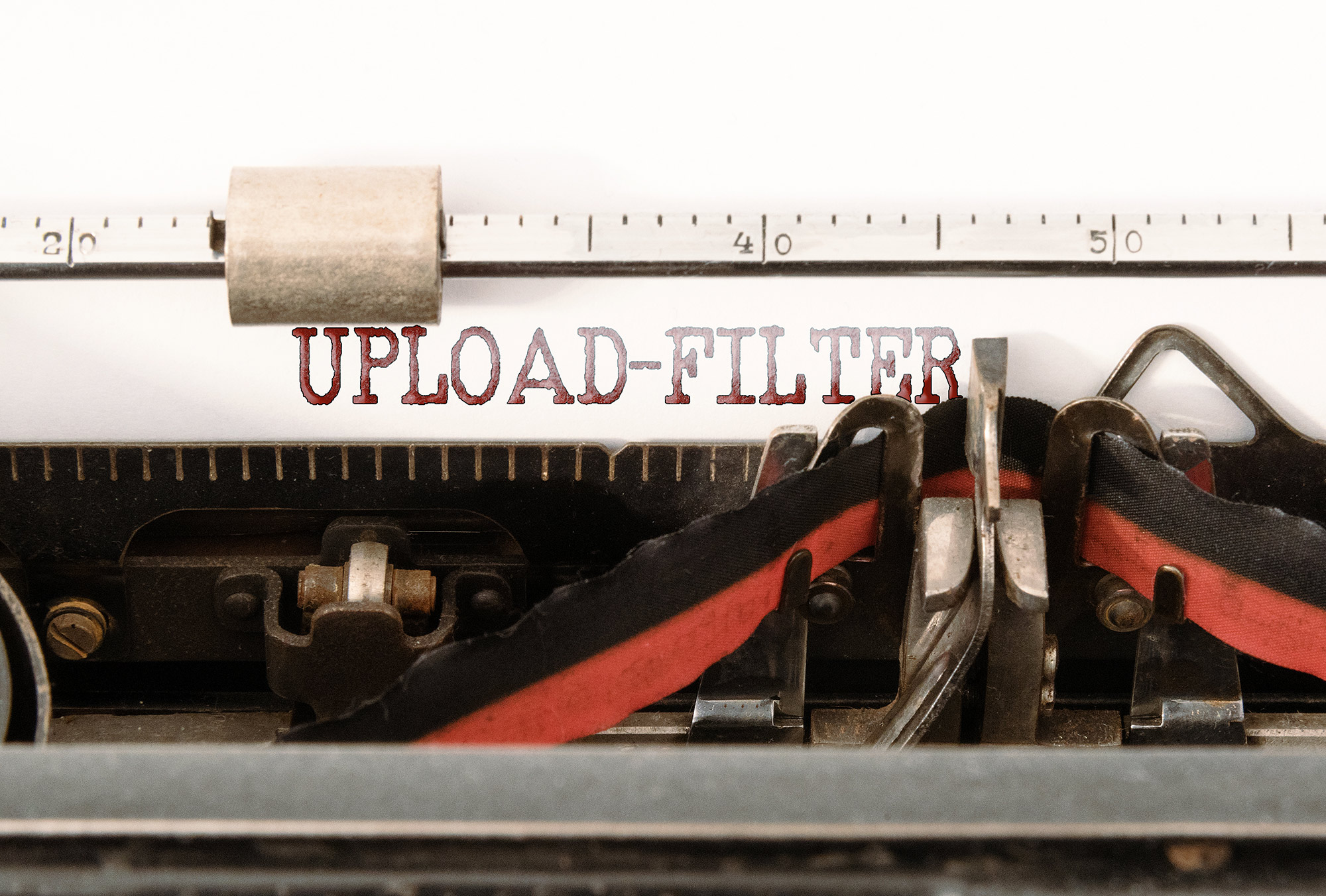
The dispute over a new EU copyright law has been going on in Brussels for years. At the beginning of March this year, the EU Commission presented its so-called “Recommendations for effective measures in dealing with illegal online content”, i.e. content protected by copyright. Online platforms and storage services are encouraged to implement measures as soon as possible to enable the blocking of illegal content on the respective platforms. One of the requirements is to automate the detection and removal of such content by implementing an upload filter.
The fact that in the future hosters will be asked through the implementation of a filter to examine all stored user data represents a serious threat to freedom of expression. The upload filter becomes a means of censorship through its automated monitoring, which also prevents legal citation of copyrighted material. For large amounts of content which is saved, a copyright infringement cannot be recognized at first sight – and much less so in an automated way. The filter would thus inevitably also lead to the removal of legally uploaded content (i.e. so-called “overblocking”), as operators will secure themselves in view of the liability risk. This massively endangers the free development, creativity and diversity of the Internet for its users and thus also means a restriction of the freedom of art and satire, as especially in the case of satire there are copyright barriers that must be assessed separately. In detail, this may mean that certain parts of what is actually copyrighted content may be part of a separate publication in the context of a quotation or an ironic representation. Exceptions apply also to contributions which are used for teachings and research and which would most likely simply not be recognizable for an upload filter. It is therefore absolutely questionable how this could be differentiated automatically and accurately.
As providers of a file platform, we would also be forced to use an upload filter – a measure whose effect is completely contrary to our understanding of democracy. Protecting the data sovereignty of our users has top priority in our philosophy. If the use of an upload filter becomes mandatory, we would also have to purchase this filter. The development of our own effective filter in a short time for different formats, such as audio and video files, text and office documents as well as images, is simply too complex even for us as an experienced software company, especially when it comes to reducing the liability risk that would come back to us in the case of an extremely complex in-house development. If the filter is purchased, in the current market situation mainly American providers such as Facebook or Google are taken into consideration as providers, since they already use corresponding systems on their own platforms (e.g. “Content ID” from Google). However, as is already well known, these companies are subject to the so-called Patriot Act, which has corresponding consequences for users of US cloud services in terms of data sovereignty. We are thus in a vicious circle which is definitely leading us into a moral conflict and which also raises major questions in connection with the new EU general data protection regulation.
But that’s not all: the decision causes economic damage to all medium-sized companies in Europe and at the same time provides American providers with a financial benefit and a competitive advantage – and also supports monopolisation. Non-commercial projects, often run on a voluntary basis, such as online encyclopaedias, would also face a major economic and legal challenge. Although the German government spoke out against the binding introduction of the upload filter in the coalition agreement and described the measure as disproportionate, the Federal Ministry of Justice in charge supports this proposal contrary to the recommendations of the relevant politicians of both government parties.
The importance of this issue is also demonstrated by the reactions of civil society. A few weeks ago, for example, representatives from science and industry, as well as activists, wrote an open letter against the European reform of copyright law and in particular against the proposed upload filter. Among others, the letter addresses the MEP and rapporteur Axel Voss (CDU), who was decisively involved in the EU copyright line. The letter was signed by the Digitalverband Bitkom and the Verbraucherzentrale Bundesverband e.V., among others. Further addressees of the letter are also Minister of Economics Brigitte Zypries (SPD) and Head of the Chancellor’s Office Peter Altmaier (CDU).
A decision on the enforcement of the initiative by the EU Commission is still pending. In the interests of democracy and freedom of expression, as well as in view of the feared weakening of small and medium-sized enterprises, it is essential to prevent the implementation of upload filters.
These Stories on Compliance, Data Privacy & GDPR

© 2023 DRACOON GmbH
Made in Germany
Phone. +49 (941) 7 83 85-0